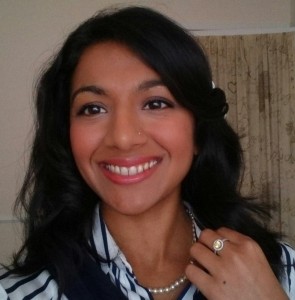
Scientific Consultant for a global Biotech Company – working with Research Institutes across the North of England e.g. University of Manchester, CRUK, NHSBT.
I ask myself this question at the beginning of Ramadan each year; every year is different for me with juggling a career that includes a lot of travel and is not 9-5.
With such a busy work schedule I rarely take the time out for myself so I look forward to Ramadan as a time for reflection.
Yes Ramadan does mean abstaining from certain things including food and drink; but for me it is more about allowing myself to think beyond the day to day activities. To think about the less fortunate. It is a time for reflection, solitariness as well as time with family and friends. It is a time to forgive and put the past behind me and look forward to the future.
It can be very challenging to get the whole family together with busy work schedules for everyone and living in different places. So during Ramadan we all try and make the effort to take time out and eat together. I try and be conscious of the food I eat; I remember when we were younger we did have a lot of fried samosas and other fried foods which is really not great during Ramadan. At Sehri I try to eat slow energy releasing foods like porridge, nuts and dried fruits. And at Iftar I drink plenty of water and dates before I eat anything else. The dates are a great sweet option as its all natural sugars and your body craves sugars and carbohydrates after being starved. It helps me to think about the different food groups that my body needs and prepare meals accordingly.
There are days when fasting is not possible for me due to the travelling so on these days I’m very conscious that I eat what I need to eat in order not to feel unwell and still get through the day. Or mostly I will just drink water and abstain from food. Each day is very different so I decide what is best to do on the day.
The days of fasting are long with it being over the summer months; but going without food and water has many benefits. There are current studies and clinical trials where the data is showing that fasting for 48 and 72 hours have shown to cause regeneration of stem cells in the bone marrow, i.e. stimulate the immune system to develop new cells to fight off infections. One of these studies was carried out on mice and aimed to see whether cycles of fasting could increase the white blood cell counts, as these are depleted during chemotherapy treatment leaving the body vulnerable to infections. The clinical trial in humans is currently being carried out to get conclusive results (carried out by the University of Southern California).
I love to talk about Ramadan and Islam with colleagues and friends from different cultures and religions. It’s very interesting how Muslims from other cultures see through Ramadan but ultimately it’s the unity that it creates. The more I talk about my experiences the more others can see into my world; which is very different to what the media portrays.
It’s great to see Share Ramadan being hugely successful; it is a great opportunity to challenge others to share this month with us and see first-hand what it is all about.
Supa Begum
Scientific Consultant for a global Biotech Company – working with Research Institutes across the North of England e.g. University of Manchester, CRUK, NHSBT. Main research areas include Immunology, Cancer & Stem Cell.
I love hiking; weekends in the countryside are great. I love to travel and experience different cultures and cuisines.
Disclaimer
The views expressed in this blog are those of their respective authors and do not necessarily reflect those of Share Ramadan.









Leave a Reply